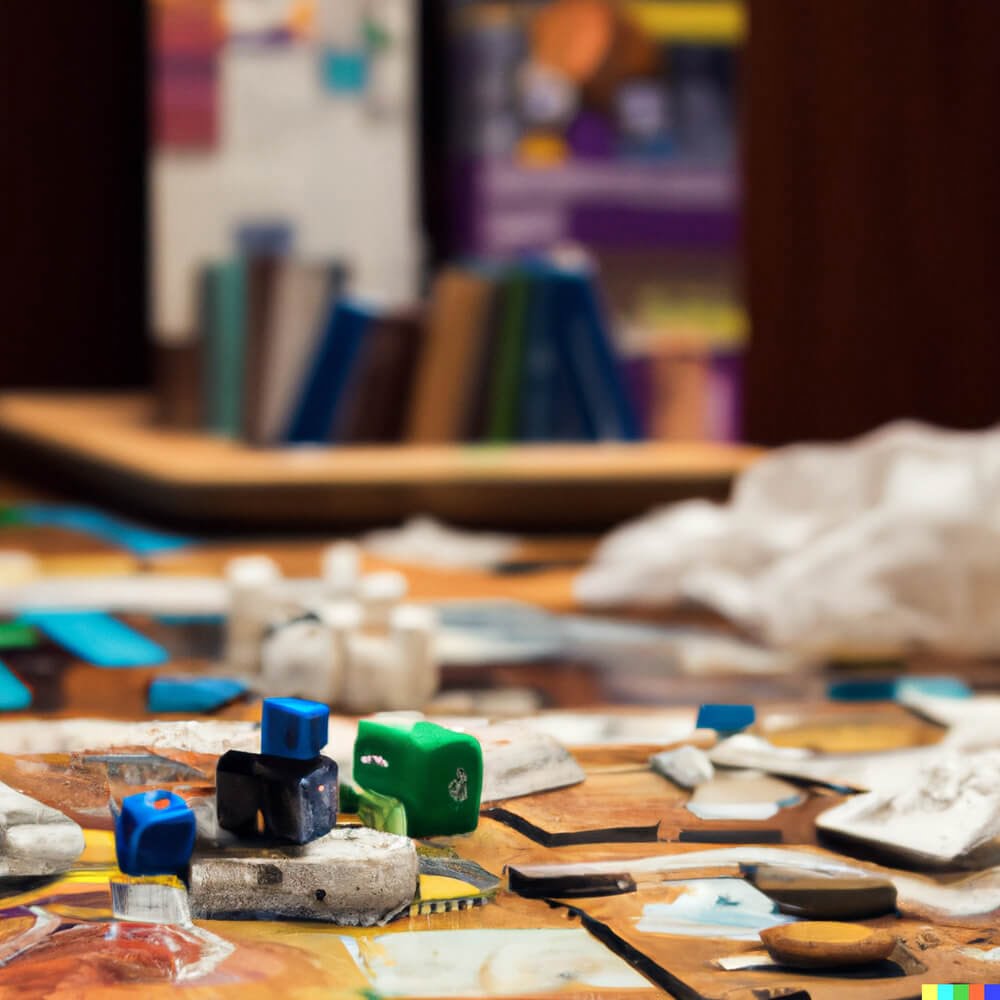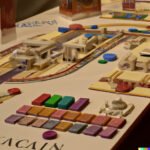New versions of classic board games have been making a significant impact in the gaming industry, attracting both nostalgic fans and new players alike. The resurgence of classic board games in popular culture has led to the release of innovative and updated versions of beloved titles such as Monopoly, Scrabble, and Clue.
In this article, we will explore the history, impact of technology, design and innovation, cult following, collector’s editions, accessibility and inclusivity, and speculate on the future of these timeless games.
The history of classic board games spans back many decades, with some titles becoming iconic staples in family game nights and social gatherings. Understanding the origins and evolution of these classics provides valuable insight into why new versions continue to captivate audiences today. Additionally, we will delve into how advancements in technology have influenced the development of new versions of classic board games, from digital adaptations to online multiplayer options.
Furthermore, we will highlight the unique features and design elements that set apart these new versions from their predecessors. Whether it’s updated artwork, new game mechanics or enhanced components, these modern iterations offer a fresh take on timeless gameplay. Stay tuned to learn about how devoted fan bases continue to embrace classic board games and eagerly anticipate the release of new editions that honor tradition while embracing innovation.
History of Classic Board Games
The history of classic board games such as Monopoly, Scrabble, and Clue is rich and varied, with each game having a unique origin story and evolution over time. Monopoly, for example, was originally based on “The Landlord’s Game” designed by Elizabeth Magie in 1903 as a critique of the economic concepts of the time. It was later patented by Charles Darrow and then acquired by Parker Brothers in the 1930s.
Scrabble, on the other hand, was invented by Alfred Butts during the Great Depression and has since become one of the most popular word games worldwide. Clue, also known as Cluedo in some regions, was created in the UK during World War II by Anthony E. Pratt and has undergone various revisions over the years.
Each of these classic board games has undergone significant evolution since their original inception. Monopoly has had numerous themed editions featuring different locations and pop culture franchises such as Star Wars and Disney. Scrabble has seen changes in scoring rules and tile distributions to keep up with language changes and improve gameplay balance. Clue has had variations in character names and designs to reflect different cultural contexts.
Throughout their histories, these classic board games have remained popular due to their timeless gameplay mechanics, engaging themes, and social interaction elements that continue to appeal to players of all ages. These foundational aspects have contributed to the enduring legacy of these games and have influenced their modern adaptations.
| Classic Board Game | Origins | Evolution |
|---|---|---|
| Monopoly | Elizabeth Magie’s “The Landlord’s Game” (1903) critiquing economic concepts | Themed editions featuring different locations & pop culture franchises. |
| Scrabble | Invented by Alfred Butts during Great Depression. | Changes in scoring rules & tile distributions for language changes. |
| Clue (Cluedo) | Created by Anthony E. Pratt during World War II. |
Impact of Technology
The impact of technology on classic board games has been revolutionary, bringing about the development of new versions that integrate digital adaptations and offer online multiplayer options. The advent of technology has transformed traditional board games into interactive experiences that cater to modern preferences and lifestyles.
Digital Adaptations
One significant influence of technology on classic board games is the rise of digital adaptations. Game developers have created mobile app versions and computerized adaptations of classic board games, allowing players to enjoy their favorite titles on digital platforms. This shift has made classic board games more accessible, convenient, and portable, enabling players to engage in their favorite pastime anytime, anywhere.
Online Multiplayer Options
Furthermore, technology has facilitated the introduction of online multiplayer options for classic board games. Players can now connect with friends or strangers from around the world to engage in virtual game sessions. Online multiplayer features provide a social aspect to classic board games, fostering a sense of community and camaraderie among players who share a passion for these timeless titles.
Virtual Reality and Augmented Reality
In addition to digital adaptations and online multiplayer options, advancements in technology have paved the way for virtual reality (VR) and augmented reality (AR) integrations in new versions of classic board games. VR and AR technologies bring an immersive dimension to gameplay, creating an interactive and visually stimulating experience for players. These cutting-edge innovations add a futuristic twist to beloved classics, appealing to modern audiences who crave innovative gameplay experiences.
Design and Innovation
New versions of classic board games offer more than just a fresh coat of paint – they provide players with a unique gaming experience that combines the charm of the original game with new and innovative elements. These updated versions boast a variety of exciting features that set them apart from their predecessors, making them a must-have for both long-time fans and newcomers to the world of board gaming.
Some notable design and innovation elements in new versions of classic board games include:
- Updated artwork: Many new versions feature updated artwork and graphic design, breathing new life into the game’s visuals while retaining the essence of the original style.
- New game mechanics: To keep things interesting, game designers often introduce new mechanics or twists to classic gameplay, adding layers of strategy and excitement to familiar experiences.
- Enhanced components: From upgraded game pieces to higher-quality materials, modern iterations often come with improved components that enhance both the look and feel of the game.
Whether it’s a reimagined board, customizable player tokens, or cleverly redesigned cards, these design and innovation elements contribute to an overall enhanced gaming experience that captivates players and reignites their love for timeless classics in brand new ways.
In addition to revamping the visual aspects and gameplay mechanics of classic board games, many modern editions also come with additional content such as expansion packs or bonus materials that further enrich the gaming experience. With these innovative upgrades, new versions bring an exciting twist to beloved titles while preserving their nostalgic appeal.
Cult Following
New versions of classic board games have been met with an enthusiastic response from devoted fans of these timeless titles. With a rich history and cultural significance, classic board games like Monopoly, Scrabble, and Clue have established themselves as beloved staples in the world of tabletop gaming. The release of new versions has only served to reignite interest in these games, prompting excitement and anticipation among players.
One reason for the cult following of classic board games is the nostalgia and fond memories associated with these titles. Many people have grown up playing these games with friends and family, creating strong emotional connections to the experiences they provide. As a result, the opportunity to experience updated versions or reimagined editions can evoke a sense of joy and sentimentality among fans.
Additionally, classic board games often foster a sense of community and social interaction. Whether played in person or online, these games bring people together and facilitate bonding through shared experiences. The dedicated fan base for these games is further fueled by the sense of camaraderie and friendly competition that they offer. This communal aspect contributes to the fervor surrounding new releases of classic board game editions.
| Classic Board Games | Cult Following |
|---|---|
| Monopoly | Nostalgia and sentimental value drive excitement for new versions |
| Scrabble | Fosters community and social interaction among fans |
| Clue | Prompts anticipation and enthusiasm for reimagined editions |
Collector’s Editions
Exclusivity and Uniqueness
Collector’s editions of classic board games hold a special appeal to enthusiasts and collectors due to their exclusivity and uniqueness. These limited edition versions often feature custom-designed boards, premium-quality components, and deluxe packaging that distinguishes them from standard releases. The appeal of owning a rare or special edition of a beloved classic game adds to the overall allure of collector’s editions.
Special Features and Add-Ons
In addition to unique design elements, collector’s editions of classic board games often come with exclusive add-ons or special features that make them highly sought after. From metallic tokens and sculpted figures to themed accessories and art prints, these additional components contribute to the overall value and desirability of collector’s editions. Board game enthusiasts are drawn to the enhanced gameplay experience and aesthetic appeal offered by these special features.
Appreciation for Legacy
Collector’s editions also serve as a way for fans to express their appreciation for the legacy of classic board games. By investing in these limited edition versions, players demonstrate their dedication to preserving the history and cultural significance of iconic titles like Monopoly, Scrabble, or Clue. The opportunity to own a piece of gaming history through a collector’s edition speaks to the enduring impact and influence of these beloved games on popular culture.
The appeal of collector’s editions continues to grow as new versions of classic board games offer unique and enhanced experiences for players. With their exclusive designs, special features, and appreciation for legacy, these limited edition releases capture the attention of both dedicated fans and newcomers alike.
Accessibility and Inclusivity
The resurgence of classic board games in popular culture has sparked a renewed interest in making these beloved games more accessible and inclusive. As new versions of classic board games are released, developers and publishers are making efforts to ensure that a wider audience can enjoy these timeless favorites.
One way they are addressing this is by providing language options for players across the globe. By offering instructions and game components in multiple languages, new versions of classic board games are becoming more accessible to non-English speaking audiences.
Another important aspect of making classic board games more inclusive is by incorporating accessibility features. This includes designing game components with tactile features for visually impaired players, as well as creating colorblind-friendly artwork and designs. Developers are also considering diverse representation within the game, such as including characters from various cultural backgrounds or introducing non-binary gender options for player pieces.
In addition to language options and accessibility features, efforts to make new versions of classic board games more inclusive extend to promoting diverse representation within the game itself. In recent releases, there has been a conscious effort to showcase characters from different ethnicities and backgrounds, allowing players from all walks of life to feel represented in the game. This is a significant step towards ensuring that classic board games remain relevant and enjoyable for a modern, diverse audience.
- Language options for global accessibility
- Incorporating accessibility features for visually impaired players
- Promoting diverse representation within the game
Future of Classic Board Games
In conclusion, the future of classic board games looks bright as the resurgence of these timeless favorites continues to captivate both new and seasoned players. With the ongoing innovation in game design and a dedicated fan base, it is highly likely that we will see even more new versions of classic board games in the gaming industry.
As technology advances, there will be further opportunities for creative adaptations and interactive experiences, drawing in a new generation of players while still satisfying the loyal enthusiasts.
The potential for future releases of new versions of classic board games is vast, with room for exploration in terms of game mechanics, artwork, and components. Game developers and designers are constantly pushing boundaries to create exciting updates to beloved classics, catering to diverse preferences and maintaining the charm of the original games.
As accessibility and inclusivity remain important considerations in game development, we can expect to see efforts towards making these new versions more accessible to a wider audience, whether through language options or features that accommodate different needs.
Overall, classic board games have proven their enduring appeal over the years, and their place in popular culture is solidified. The love for these timeless games ensures that they will continue to thrive and evolve, with new versions offering fresh experiences while upholding the nostalgia and enjoyment that players have come to cherish.
The gaming industry holds ample promise for the future of classic board games, paving the way for exciting developments that will undoubtedly capture the hearts of enthusiasts around the world.
Frequently Asked Questions
What Is the Most Popular Classic Board Game?
The most popular classic board game is arguably Chess. It has been played for centuries and is known for its strategic depth and competitive nature. Chess has a dedicated following and is widely considered to be one of the greatest board games of all time.
Are There Different Versions of the Board Game Life?
Yes, there are different versions of the board game Life. The classic version involves players navigating through various life events such as getting married, having children, and choosing career paths. There are also different themed versions of the game that incorporate pop culture references or specific themes like vacations or pets.
What Is the Best Board Game of All Time?
The best board game of all time is a matter of personal preference, but many people consider Settlers of Catan to be one of the greatest. It revolutionized modern board gaming with its unique blend of strategy, negotiation, and resource management.
Settlers of Catan has won numerous awards and continues to be highly regarded within the board gaming community for its innovative gameplay.

I love playing all kinds of games – from classics like Monopoly to modern favourites like Ticket to Ride.
I created this blog as a way to share my love of board games with others, and provide information on the latest releases and news in the industry.





